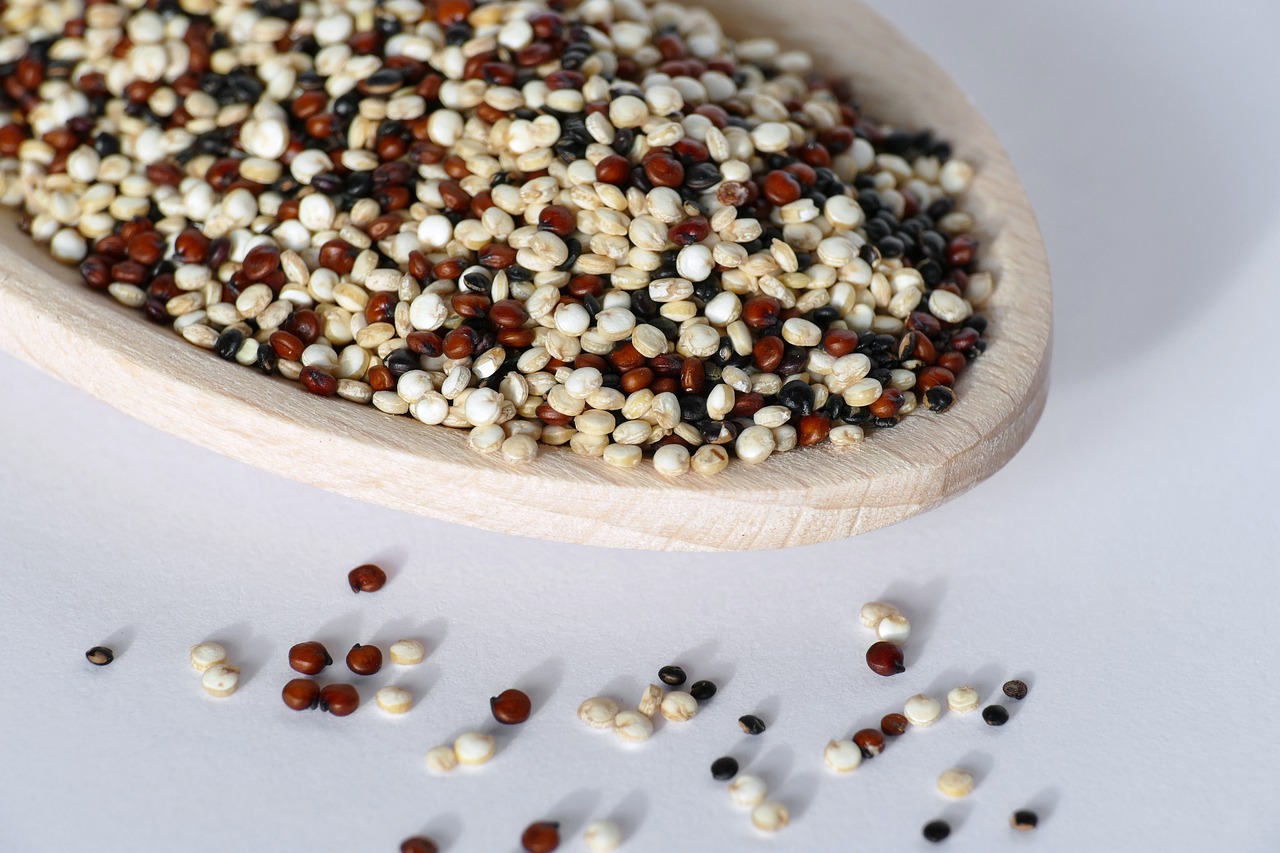Ketogenic Diet
Ketogenic Diet and Alzheimer's
To fight Alzheimer’s effectively you must stop thinking about the disease the way doctors have thought about it in the past. Don’t think of it as a cognitive disorder, but as a metabolic disorder. Yes, cognitive decline is a symptom but at its root Alzheimer’s is caused, at least in part, by how you metabolize sugars and fats.
Remember, APOE is a protein that binds to lipids (fats) and is supposed to transport them to various cells within the body. Unfortunately, Apoe4 is bad at transporting lipids and therefore, in the brain, lipids build up in cells called microglia. Lipid transport and lipid metabolism are at the root of the problem. Other lipid metabolism genes, such as CLU1, TREM2 and ABCA7, have also been linked to Alzheimer’s. If you start thinking of Alzheimer’s as a lipid disease, I think you will have better success fighting it because you better understand what to target.
Ketogenic Diet and Alzheimer's - A Proposed Mechanism
In addition to amyloid beta plaques and tau neurofibrillary tangles, Alzheimer’s is characterized as the brain’s decreased ability to utilize glucose as an energy source. As we discussed in other sections of this webpage, when you eat too much sugar or too many carbohydrates over a long period of time, you will become insulin resistant and your body will stop responding to the normal signals that tell cells to absorb glucose.
With Alzheimer’s, starvation of neurons accounts for the majority of the brain loss. It is an interesting, sad and ironic truth that eating more energy rich food actually causes starvation. However, digital and mechanical systems work the same way. Too many cell phone calls during an emergency overloads the cell phone network so that fewer people can make calls. During a heat wave so many people use energy that the grid is overloaded and rolling blackouts occur. Same thing with our brain. With too much glucose floating around our system for too long, the glucose metabolic signals shut down. The brain uses a significant amount of energy and when the brain can’t process glucose it starves.
The ketogenic diet can potentially solve both the energy problem and the lipid problem. A ketogenic diet removes glucose from the equation and instead provides another energy source. Fat. When carbohydrates and glucose is removed from your diet, your liver will process fat into ketone bodies using a process called ketosis. Once ketone bodies are produced in the liver, they then enter the bloodstream and can be used as alternative energy sources by other organs. Ketone bodies cross the blood brain barrier (BBB) and, just like glucose, brain cells can convert ketone bodies into energy.
Studies have shown that ketone bodies can compensate for the reduced glucose metabolism seen in the brains of Alzheimer’s patients. Although the exact mechanism of how a ketogenic diet is protective against Alzheimer’s has not fully been worked out, one possibility is that by switching from glucose and carbohydrates as the primary energy source to ketone bodies and fat, you may alter some of the lipid transport and clearing issues associated with Apoe4.1,2
The Keto Diet and Macronutrients
Alzheimer's and Ketogenic Diet Studies
Most of the positive effects of the ketogenic diet has been attributed to a particular ketone body called beta-hydroxybutyrate. Acetone and acetoacetic acid make up the other ketone bodies. Many studies have found that beta-hydroxybutyrate has positive effects in regards to Alzheimer’s disease.
For example, one in vivo study found the beta-hydroxybutyrate reduced amyloid plaques, lipid deposits, and tau neurofibrillary tangles. Their experimental design involved feeding a high fat diet to mice that have had the APOE gene removed. The experiment group of mice were given beta-hydroxybutyrate and the control group was not. The study also found that inflammation in the brain was significantly reduced in the beta-hydroxybutyrate supplemented mice. In addition, a hormone called resistin was reduced. Resistin has been shown to cause high levels of LDL cholesterol and it is associated with obesity, insulin resistance, inflammation and yes, Alzheimer’s disease. Other studies have found that beta-hydroxybutyrate also improves mitochondria function and reduces reactive oxygen species (ROS) which, if you remember, is the basis for the mitochondrial cascade hypothesis of Alzheimer’s disease.5,6
However, the real test of ketogenic diets as a way to reduce Alzheimer’s risk is randomized clinical trials. A small 20 person randomized clinical trial compared a modified ketogenic diet with an American Heart Association Diet (AHAD). The participants were older adults at risk for Alzheimer’s disease. The AHAD is a low fat diet (less than 40 grams per day) and the ketogenic diet was modified towards a Mediterranean diet of low amounts of saturated fat, healthy vegetables, fruits and grain within limits that allowed for ketosis. Both diets showed cognition improvements and showed lower tau levels in CSF. However, only the modified ketogenic diet showed enhanced cerebral blood flow and a significant increase in amyloid beta 42 in cerebrospinal fluid which indicates that amyloid beta plaques were breaking up in the brain.7
Another randomized clinical trial divided 23 mild cognitively impaired subjects into a high carbohydrate group and a low carbohydrate group that was designed to induce ketosis. After six weeks, the subjects underwent memory testing and clinical testing for insulin, ketones, glucose and other metabolic values. The subjects on the ketogenic scored better on memory tests and the level of ketones in blood were correlated to an increase in memory performance indicating that a ketogenic diet had positive effects.8
There were several other clinical trials that showed positive effects on a ketogenic diet, but most of them used MCT or MCT analogues as part of the study design. MCT stands for medium chain triglycerides and it is a manufactured form of saturated fat that is known to induce ketosis. However, if you read the macronutrients section of this website you’ll remember that saturated fat is not good for Apoe4 carriers. But, let’s take a look and see what happened.
The two randomized clinical trials that used MCT or MCT analogues and specifically looked at Apoe4 carriers compared to non-carriers found that only non-Apoe4 carriers had positive results. When MCT is used on Apoe4 carriers, they do not improve. Therefore, if you are an APOE4 carrier, like me, it is recommended not to use MCT or other concentrated forms of saturated fat, such as coconut oil, as a routine part of your diet. Because of these two clinical trials, I personally try to avoid saturated fat as much as possible. However, if you are not an Apoe4 carrier, drink it up because MCT has been shown to improve cognition.9,10
Several individual case studies with APOE4 carriers have shown, at least anecdotally, that ketogenic diets can be beneficial to Apoe4 carriers. In one case, a 71 year old female was heterozygous for Apoe4 and was diagnosed with mild AD. After 10 weeks her cognitive tests were in the normal range, insulin resistance decreased by 75%, triglycerides decreased by 50%, VLDL (very low density lipoprotein) also decreased by 50% and A1c levels decreased significantly. Also, Dale Bredesen documents several case studies in his book The End of Alzheimer’s in which Apoe4 carriers improve their cognitive abilities after going on the Bredesen Protocol which includes the ketogenic diet. Bredesen recently provided evidence of over 100 people on his protocol that have shown improvements.11,12,13
Alzheimer's Diet and Nutrition Sections
Keto Diet References on this Page:
- Rusek M, Pluta R, Ułamek-Kozioł M, Czuczwar SJ. Ketogenic Diet in Alzheimer’s Disease. Int J Mol Sci. 2019 Aug 9;20(16):3892. doi: 10.3390/ijms20163892. PMID: 31405021; PMCID: PMC6720297.
- Cunnane SC, Courchesne-Loyer A, Vandenberghe C, St-Pierre V, Fortier M, Hennebelle M, Croteau E, Bocti C, Fulop T, Castellano CA. Can Ketones Help Rescue Brain Fuel Supply in Later Life? Implications for Cognitive Health during Aging and the Treatment of Alzheimer’s Disease. Front Mol Neurosci. 2016 Jul 8;9:53. doi: 10.3389/fnmol.2016.00053. PMID: 27458340; PMCID: PMC4937039.
- https://www.nal.usda.gov/fnic/how-many-calories-are-one-gram-fat-carbohydrate-or-protein
- Vinciguerra F, Graziano M, Hagnäs M, Frittitta L, Tumminia A. Influence of the Mediterranean and Ketogenic Diets on Cognitive Status and Decline: A Narrative Review. Nutrients. 2020 Apr 8;12(4):1019. doi: 10.3390/nu12041019. PMID: 32276339; PMCID: PMC7231139.
- Krishnan M, Hwang JS, Kim M, Kim YJ, Seo JH, Jung J, Ha E. β-hydroxybutyrate Impedes the Progression of Alzheimer’s Disease and Atherosclerosis in ApoE-Deficient Mice. Nutrients. 2020 Feb 13;12(2):471. doi: 10.3390/nu12020471. PMID: 32069870; PMCID: PMC7071244.
- Pinto A, Bonucci A, Maggi E, Corsi M, Businaro R. Anti-Oxidant and Anti-Inflammatory Activity of Ketogenic Diet: New Perspectives for Neuroprotection in Alzheimer’s Disease. Antioxidants (Basel). 2018 Apr 28;7(5):63. doi: 10.3390/antiox7050063. PMID: 29710809; PMCID: PMC5981249.
- Neth BJ, Mintz A, Whitlow C, Jung Y, Solingapuram Sai K, Register TC, Kellar D, Lockhart SN, Hoscheidt S, Maldjian J, Heslegrave AJ, Blennow K, Cunnane SC, Castellano CA, Zetterberg H, Craft S. Modified ketogenic diet is associated with improved cerebrospinal fluid biomarker profile, cerebral perfusion, and cerebral ketone body uptake in older adults at risk for Alzheimer’s disease: a pilot study. Neurobiol Aging. 2020 Feb;86:54-63. doi: 10.1016/j.neurobiolaging.2019.09.015. Epub 2019 Sep 26. PMID: 31757576; PMCID: PMC7266642.
- Krikorian R, Shidler MD, Dangelo K, Couch SC, Benoit SC, Clegg DJ. Dietary ketosis enhances memory in mild cognitive impairment. Neurobiol Aging. 2012 Feb;33(2):425.e19-27. doi: 10.1016/j.neurobiolaging.2010.10.006. Epub 2010 Dec 3. PMID: 21130529; PMCID: PMC3116949.
- Reger MA, Henderson ST, Hale C, Cholerton B, Baker LD, Watson GS, Hyde K, Chapman D, Craft S. Effects of beta-hydroxybutyrate on cognition in memory-impaired adults. Neurobiol Aging. 2004 Mar;25(3):311-4. doi: 10.1016/S0197-4580(03)00087-3. PMID: 15123336.
- Henderson ST, Vogel JL, Barr LJ, Garvin F, Jones JJ, Costantini LC. Study of the ketogenic agent AC-1202 in mild to moderate Alzheimer’s disease: a randomized, double-blind, placebo-controlled, multicenter trial. Nutr Metab (Lond). 2009 Aug 10;6:31. doi: 10.1186/1743-7075-6-31. PMID: 19664276; PMCID: PMC2731764.
- Morrill SJ, Gibas KJ. Ketogenic diet rescues cognition in ApoE4+ patient with mild Alzheimer’s disease: A case study. Diabetes Metab Syndr. 2019 Mar-Apr;13(2):1187-1191. doi: 10.1016/j.dsx.2019.01.035. Epub 2019 Jan 24. PMID: 31336463.
- Bredesen, D. (2017) The End of Alzheimer’s: The First Program to Prevent and Reverse Cognitive Decline (1st ed.) Avery
- Bredesen DE, Sharlin K, Jenkins D, Okuno M, Youngberg W, et al. (2018) Reversal of Cognitive Decline: 100 Patients. J Alzheimers Dis Parkinsonism 8: 450. Doi: 10.4172/2161-0460.1000450
Back to Diet and Alzheimer's:
Determine which diet and nutrition plan is best for you based on your Apoe status and subtype.














